Curious truth about Syria war refugees in vast camp...
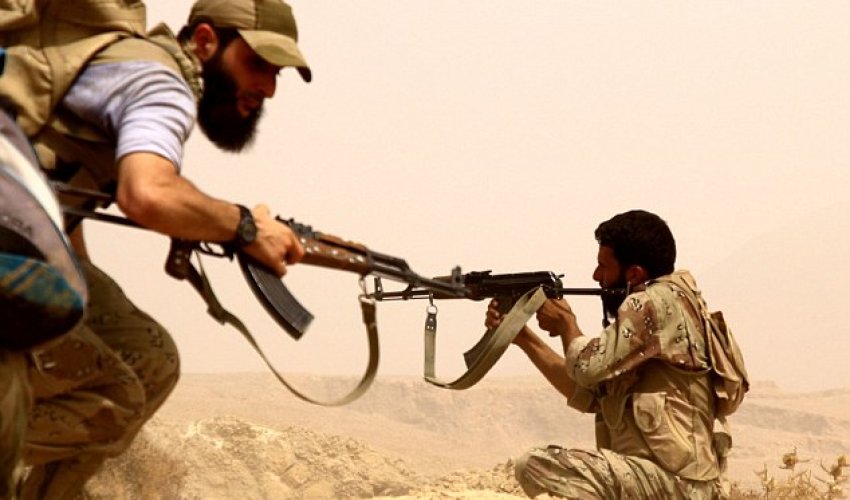
This is two stories. One is a tragedy of unimaginable proportions. The second is a story about the resourcefulness and persistence of the people coping with that tragedy.
I’ll skip the politics, except to repeat what most people know, that the war in Syria is complex and violent, and God knows when it will end.
Most of the families I’ve spoken to over the past few days come from an area in the south of the country that has been hard hit by fighting. What they all want, more than anything, is simply to go back home to Syria.
I’ll give you the numbers, though, because they’re staggering. Nearly a quarter of a million Syrians have been killed. That’s Hiroshima and Nagasaki, twice over.
There are seven million displaced people inside Syria. That’s like forcing everyone living in Birmingham to pack a bag and leave town. And Manchester. And Glasgow, Leeds, Edinburgh, Liverpool, Sheffield, Bristol and Bradford.
A further four million people have escaped to neighbouring countries. That’s the equivalent of dumping half of Greater London in France.
My journey here started a long way back. My wife and I have been giving money to Oxfam for a long time. So I wanted to write about some of their work. Four months ago, they suggested I visit Jordan, not realising we’d find ourselves in the middle of one of the biggest news stories of the last decade.
There are 600,000 Syrian refugees in Jordan, 80,000 in the Zaatari camp. Set up three years ago by the United Nations High Commission for Refugees (UNHCR) and the Jordanian government, in aerial photographs it looks like something from Mad Max.
Two miles long and a mile and a half wide, it is not a prison, but it is ringed by barbed-wire fences and earth barrows punctuated by tank emplacements. In the summer, it reaches 50C in the shade. In the winter, it snows.
We fly to Amman and head north into the desert. Camels, dust devils and a breakfast of cheese and thyme flatbreads en route. After an hour, we turn into the camp through a military checkpoint manned by Jordanian gendarmerie in black and white fatigues.
Inside are clouds of dust and rocky tracks between ragged tents and flimsy prefabs. There are big plastic water butts on rusty metal legs and pink concrete wash blocks. Children sit in triangles of shade beside buildings. There are bicycles everywhere.
We set off down the Champs-Elysees, the camp’s main street, named by staff of the French hospital which once stood at its north end.
Then there are the shops. They’re little more than shacks but you can buy pretty much anything from footballs to chickens, from spanners to shampoo, from nappies to flypaper. There are barbers and cafes and hairdressers and greengrocers and, of course, bicycle repair shops.
They queue all night for day passes. They evade the guards to slip in and out of the camp. They do deals. Because the alternative is to sit around and live off food aid.
The first shop we visit is run by Sleiman Jarrad. He’s selling women’s clothing and some rather risqué underwear. He escaped with his wife and six children after their shop in Deraa was burned down. His 13-year-old son has a scar across his face where he was injured in an air strike.
The power is off and there’s no meat for sale in Motaz Al-Khadri’s butcher’s shop. He and his wife have two sons. He’d love to return to Syria but two of his cousins were killed by a barrel bomb three days ago.
Very few shops are doing much business because no one has much money to spend, if any. It’s an act of faith, perhaps, a refusal to give in.
In the afternoon, we visit Ibada in the caravan she shares with her mother-in-law Amira, her daughters – Fatima, 11, Amal, eight, Nour, 16 months – and her son Ahmad, six. Ibada was a seamstress. Her husband used to be a policeman. He’s still in Syria. The family were lucky to get out. Fourteen of Amira’s relatives were slaughtered.
Like everyone we talk to, she finds these things profoundly upsetting to speak about and cries when she explains how another son was tortured and killed.
They have almost nothing now. Some floor cushions, a stool, thin curtains, a cupboard, cardboard flowers on the wall. But Ibada is feisty and funny and impeccably dressed. It is legal for refugees to be paid small amounts inside the camp and she helps manage the wash blocks and local water distribution for just over a pound an hour.
Outside the house is a tiny flower bed of mint and French marigold and maize. The festival of Eid is coming up and she’ll make date pastries for the children, ‘but there will be no joy’. How can there be when so many people have died, when you’ve lost your home and wonder if you’ll spend the rest of your days living hand to mouth in a makeshift city in the desert?
The following morning, we visit a community centre where 30 boys are watching a puppet show about the importance of hand-washing. Two things are immediately striking. First, that some women helping out are wearing black niqabs while others are wearing jeans and sunglasses, and the difference doesn’t cause a problem for anyone.
Second, a girl has sneaked in with the boys. Except that the girl turns out to be Hachem, who has refused to go to the barber until he goes home to Syria.
It’s not just hand-washing. Zaatari is tidy, clean – and safe. There were violent clashes with police last year after they arrested a group of refugees trying to leave the camp but now, even after dark, it is less dangerous than Oxford on a Saturday night.
We meet Khalil Mohamed who manages a recycling project. He ran landfill sites in Syria employing 200 people in Al-Ghouta, where 1,000 people were murdered in a chemical-weapons attack in 2013.
‘I was a wealthy man.’ He shrugs. ‘But now it is gone.’ Already two companies are paying to collect their metal and plastic waste and Khalil is excited at the prospect of helping Oxfam turn the project into a business which will be able to fund itself.
We meet a cafe owner, Hamed Ameen. ‘We want to work,’ he says. ‘We are being kept in this prison. We don’t want to go to Germany. We don’t want to live in any other country. We just want to live with dignity.’
On the way out, we meet his nephew, Mohamed, who sewed French lace for a fashion designer in Beirut. Then we buy falafels from Abu Ashraf, who apologises and says that the food would be so much better if he could make it with the ingredients he had back in Syria.
Syrian refugees in Jordan have three stark options. They can go back home and risk being killed. Some are so desperate they have already gone. Or they can stay in a camp, with a few hours of electricity a day and water delivered by truck, living off food vouchers topped up with the meagre takings of a battered kiosk selling sandals or aubergines, knowing that the whole precarious system depends on dwindling foreign aid. Alternatively, like most Syrian refugees in Jordan, they can try to survive outside the camp system.
Four years ago, Mowaffaq and Rana lived near Homs. He had a farm and fruit trees and a swimming pool. They escaped when a neighbouring family was murdered and their own house was bombed. They hid in a bathroom in Qodsia for four days. It took two days to cross a street controlled by a sniper. ‘They shoot the children first. When the father goes to the bodies they shoot the father.’
They now live in a one-bedroom flat with their five children. Khouloud, the eldest, is 15. The youngest, Sima, is four months. Mowaffaq is ashamed of how little he can do for them. He can’t work. They don’t qualify for public healthcare. The UNHCR gives him £110 a month. His rent is £90. If he misses one month, they will be evicted.
They receive food vouchers but in spite of the UK’s generous contribution, international aid is drying up and the value of food vouchers has been halved in recent months. He has built up £1,300 of debt just trying to feed his family. The children don’t play outside on account of the abuse they get and Mowaffaq himself rarely leaves the building. ‘I don’t want much. I just want to care for my family.’
They were well-off, successful people. They lived in the breadbasket of the Middle East. Five years ago, there would have been little between us. Then Syria was torn apart. Now I can say goodbye and drive away to anywhere in the world, but they’re trapped in three bare rooms. Before we leave, we ask the children what they want.
Hiba says she would love new clothes. Majd says he wants a bicycle. Adnan says that more than anything he would like to go swimming. In the pool on the farm, I guess, among the fruit trees.
(dailymail.co.uk)




www.ann.az
Similar news
Similar news
























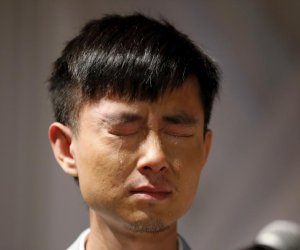
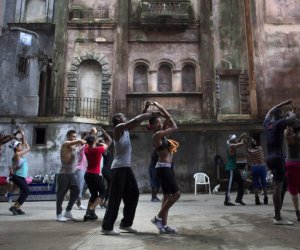
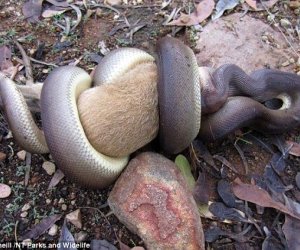
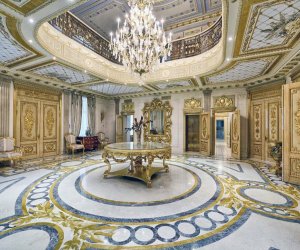
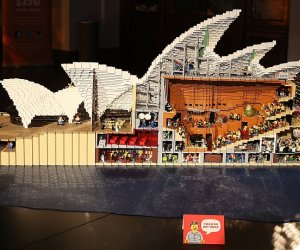
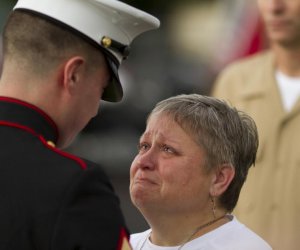
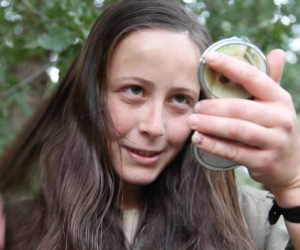
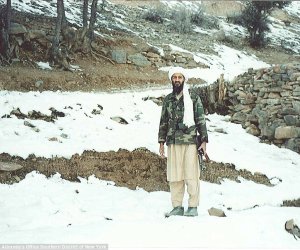
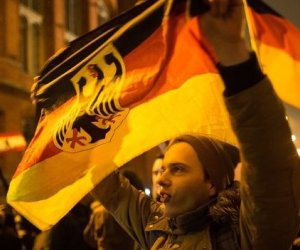



 Photo
Photo 



 Video
Video 

